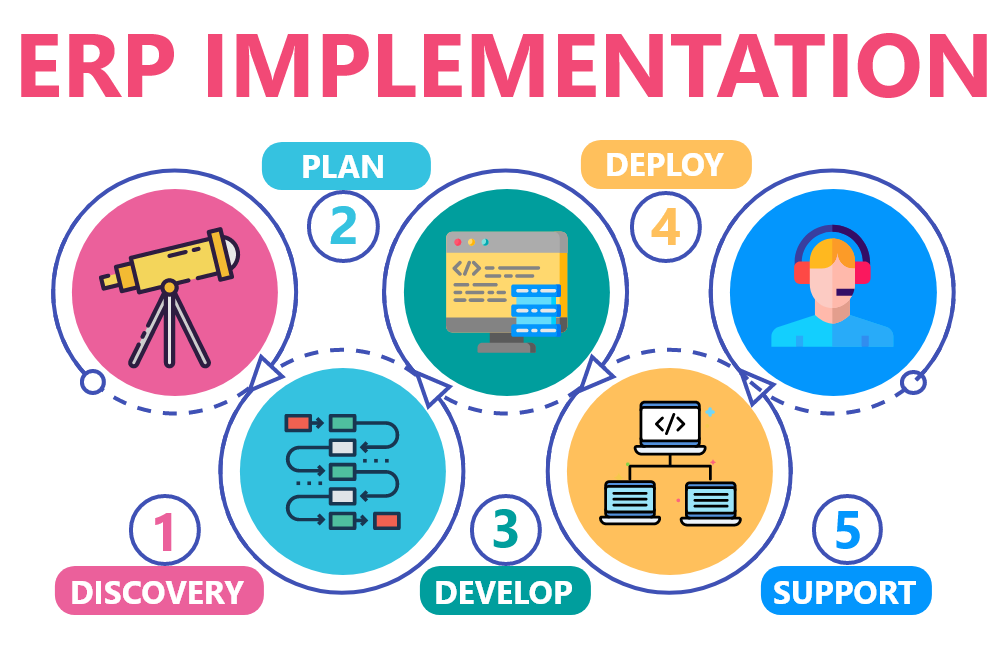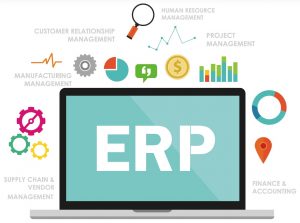ERP Implementation – While there is much interest in digital efforts like business intelligence and mobility, companies aren’t setting ambitious targets to go along with them. What is the main reason? We feel it has a lot to do with whether or not companies confer with consultants.
If you don’t engage ERP consulting services and instead perform an in-house ERP deployment, setting ambitious (and explicit) goals can be challenging. Keep on reading for a synopsis and a deep dive into data exposing the risks of in-house ERP implementation.
A Brief Narrative of ERP
Although Enterprise Resource Planning System (ERP) did not become popular until the 1990s, its roots may be traced back to the 1960s. Inventory management and control were the terms used back then.
In the 1960s, there was a greater emphasis on industry output. Computing solutions were developed to aid in the increase of manufacturing. During this time, software developers concentrated on developing inventory management applications.
By the 1990s, these systems had progressed to include accounting, human resources, customer engagement, and other business areas.
We are now in the year 2022 when ERP software is no longer just a tool for automating procedures but also for creating digital business models. Digital business transformation is the term for this.
It’s critical to get third-party advice irrespective of the nature of the project you’re working on.
In-house ERP Implementation : Reasons to avoid them!
Suppose any of the following statements apply to your firm. In that case, you might consider engaging outside specialists to assist you in achieving your project objectives:
➡ ERP is not a strong suit for your organization
The majority of businesses lack the knowledge and experience required to manage an ERP Project Management software. According to a study, organizations struggle to appreciate the diversity of business benefits that their selected enterprise software could deliver—less than half of firms intended to obtain access to real-time data.
➡ Your involvement in the project is too close
Hiring a consultant to assist you in understanding the “why” behind each of your procedures is critical. Enterprise Resource Planning installation consultants will draw on lessons gathered from multiple projects in various industries. They are unconcerned about doing things a certain way simply because that is how they have traditionally been done.
➡ No Artificial Intelligence or Business Intelligence
Businesses lack the necessary infrastructure and business procedures to enable AI. Many don’t want to pay an ERP Consulting firm to help them implement AI. Since most project teams lack the broad scope of expertise in sophisticated technologies, consultant advice is needed regardless of what modern digital efforts you’re undertaking.
➡ A strong resistance to change is expected
Organizational challenges were among the most popular reasons for budget overruns among respondents. Hiring ERP Change Management Services can help you determine the effects of change on each employee category. They can then help you develop a targeted communication strategy.
Count on the ERP Pros for top-notch assistance!
An ERP consultant can help you determine the best ways to save money in the short and long term. Set aside time for strategic planning so that you may set quantifiable goals. Contact an experienced consulting firm to help you make these strategic decisions, such as identifying areas for improvement.
To understand more, you can request a consultation to learn more about our extensive service options at Connected IT Consulting by getting in touch with ERP development experts.
Related Links
ERP Project Management
Business Process mapping
Small Business ERP
ERP Consulting





